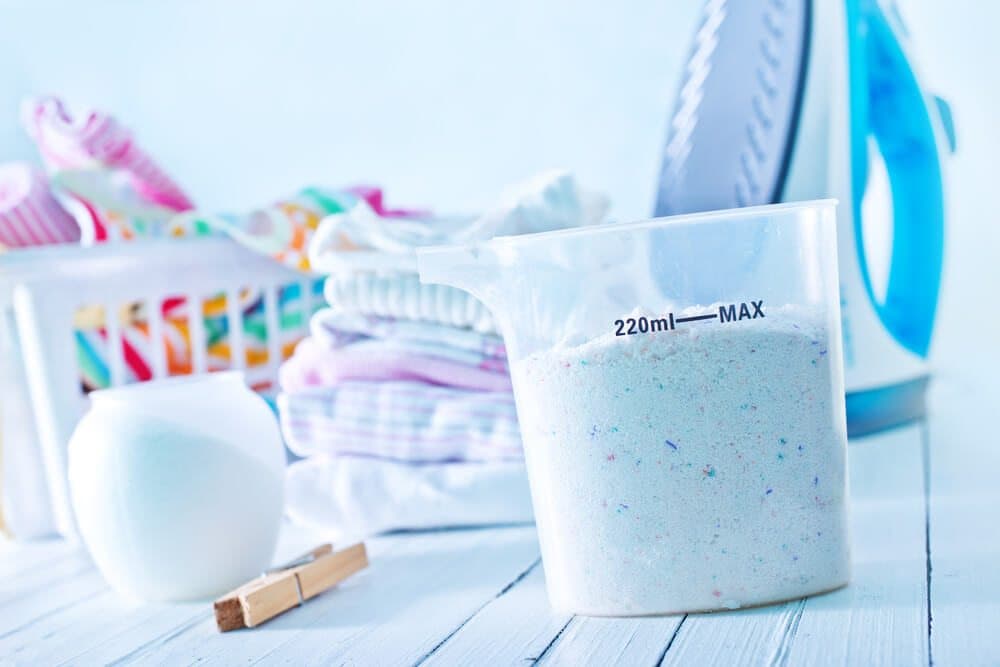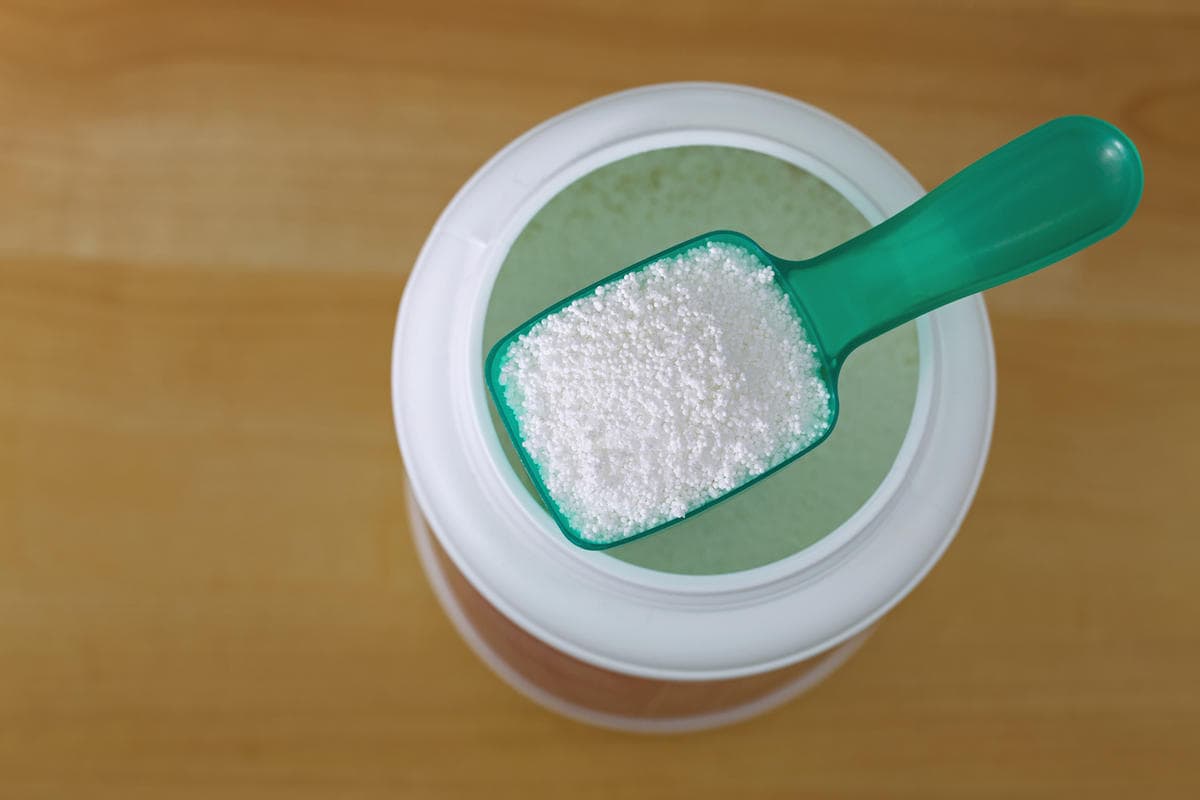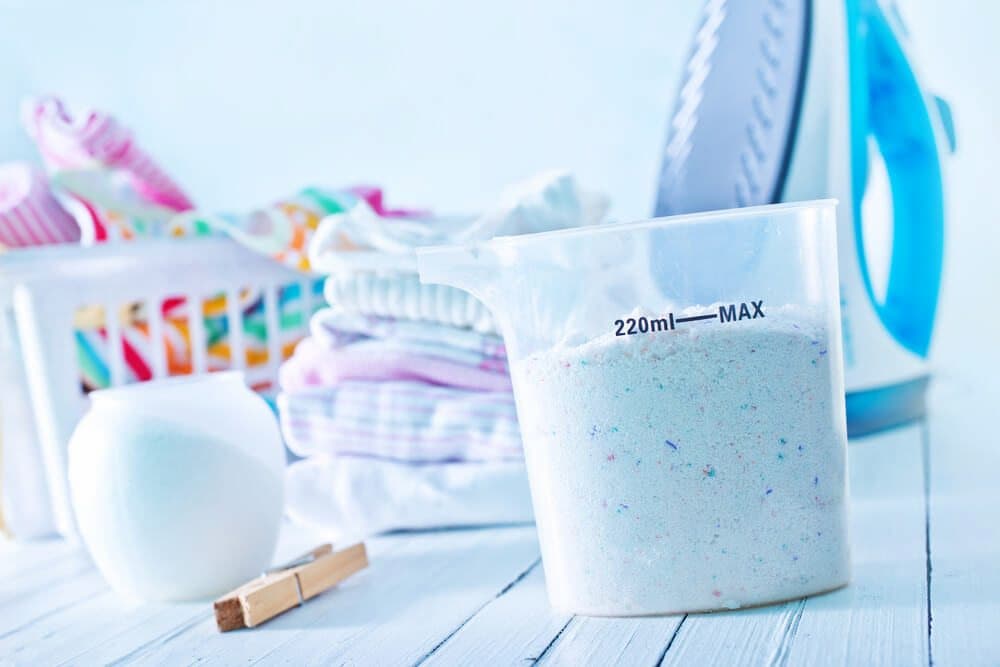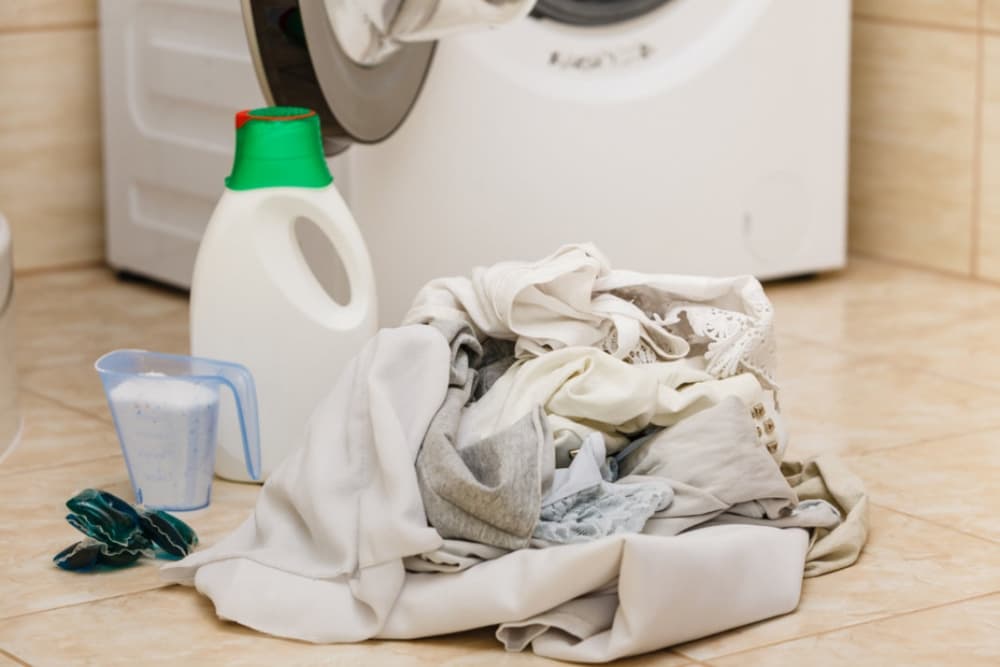What are the Ingredients of Detergent Powder?
All kinds of chemical and natural detergents have compounds that have the ability to dissolve fats and pollution
Stay with us to know the exact compounds
Chemical Analysis of Detergents specialy soaps
Laundry detergent is a synthetic compound that can accurately be described as an improved soap
The functionality has been improved to overcome some of the standard issues with soap
The average detergent contains from 9 to 17 ingredients, both solid and liquid
Conventional soaps are based on fatty acids and become effective through a combination of different molecules
While the hydrophilic end of the soap is attracted to the water, the hydrophobic end of the molecule is attracted to the lipids in the dirt
The problem arises with hard water – the minerals react with the soap and form insoluble curds
Known as sediment, it leaves visible deposits on fabrics, making them stiff and unattractive
The hydrocarbons used in soaps are usually of vegetable or animal origin, while the hydrocarbons used in detergents can be derived from crude oil
Its combination with sulfuric acid creates a molecule similar to the fatty acids in soap
The addition of alkali to the mixture results in the formation of a surfactant molecule
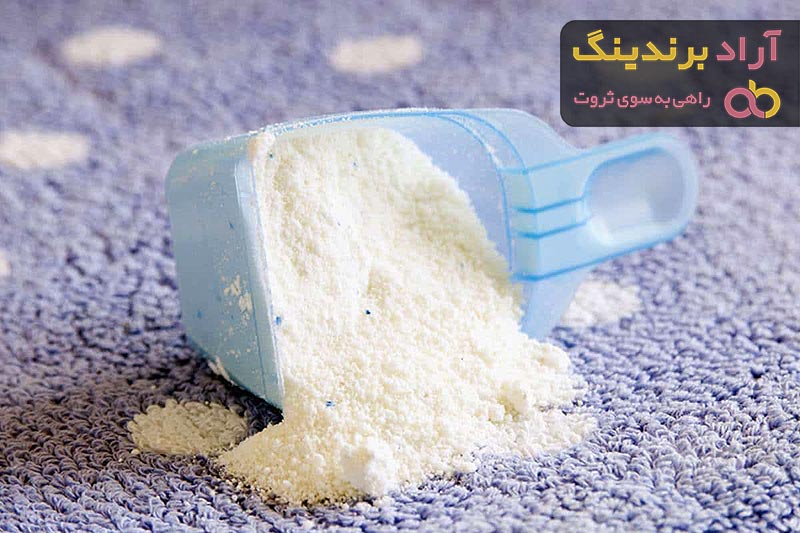
Ingredients of Detergent Powder
Alcohol ethoxylate (AE) is a nonionic surfactant
Alkyl (or alcohol) ethoxy sulfate (AES) and alkyl sulfate (AS) anionic surfactants
Amine oxide
Carboxymethyl Cellulose (CMC)
citric acid
Cyclodextrin
Dimethyl ether Dimethyl ammonium chloride (DEEDMAC)
Ethanol
The detergent is an alkaline chemical detergent composed of sodium alkylbenzene sulfonate, sodium sulfate, sodium toluene, sodium tripolyphosphate, and carboxymethyl
When dissolved in water, it can pass through the skin
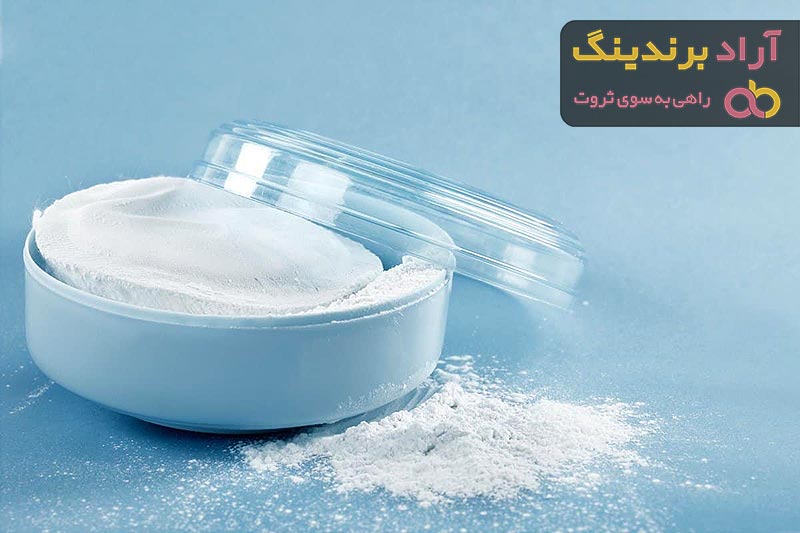
Inhalation into the body and repeated contact with washing powder (water) causes keratinized skin and cracks; if the substance that is part of the washing powder enters the human hematopoietic system, it also affects liver function
Alkaline protease washing powder can hydrolyze the proteins on the clothes to achieve the effect of disinfection
However, this alkaline protease can also break down the proteins on the surface of the skin, which may lead to allergic dermatitis, eczema, etc
So washing powder should be avoided when washing hands
However, you don’t need to worry about the above problems

